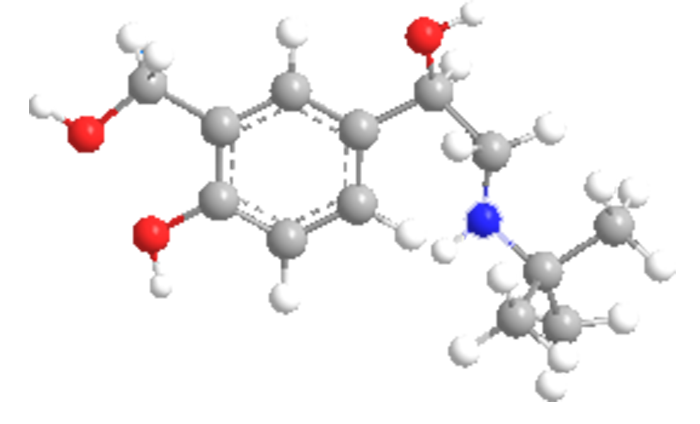

Albuterol is a widely used bronchodilator. It is one of a series of compounds that were patented in 1972 by L. H. C. Lunts and co-inventors and assigned to Allen and Hanburys, a British pharmaceutical company that dated back to the early 18th century. (It eventually became part of the GlaxoSmithKline conglomerate.)
The patent describes the compounds of the invention as stimulants or blockers of β-adrenergic receptors. It is now known that albuterol is a short-acting β2-adrenergic receptor agonist. It is prescribed for treating pulmonary conditions such as bronchitis, asthma, and chronic obstructive pulmonary disease.
Albuterol is a racemic mixture. The pharmaceutical literature contains conflicting accounts of the mechanisms of action of the two enantiomers. What is clear is that (R)-albuterol has 100â150 times greater affinity for β2-receptors than the (S) enantiomer and is likely responsible for bronchodilation. In some accounts, (S)-albuterol is said to increase bronchial activity, but in others it is described as inactive.

Learn more about this molecule from CAS, the most authoritative and comprehensive source for chemical information.
Molecule of the Week needs your suggestions!
If your favorite molecule is not in our archive, please send us a message. The molecule can be notable for its current or historical importance or for any quirky reason. Thank you!
Stay Ahead of the Chemistry Curve
Learn how ACS can help you stay ahead in the world of chemistry.

